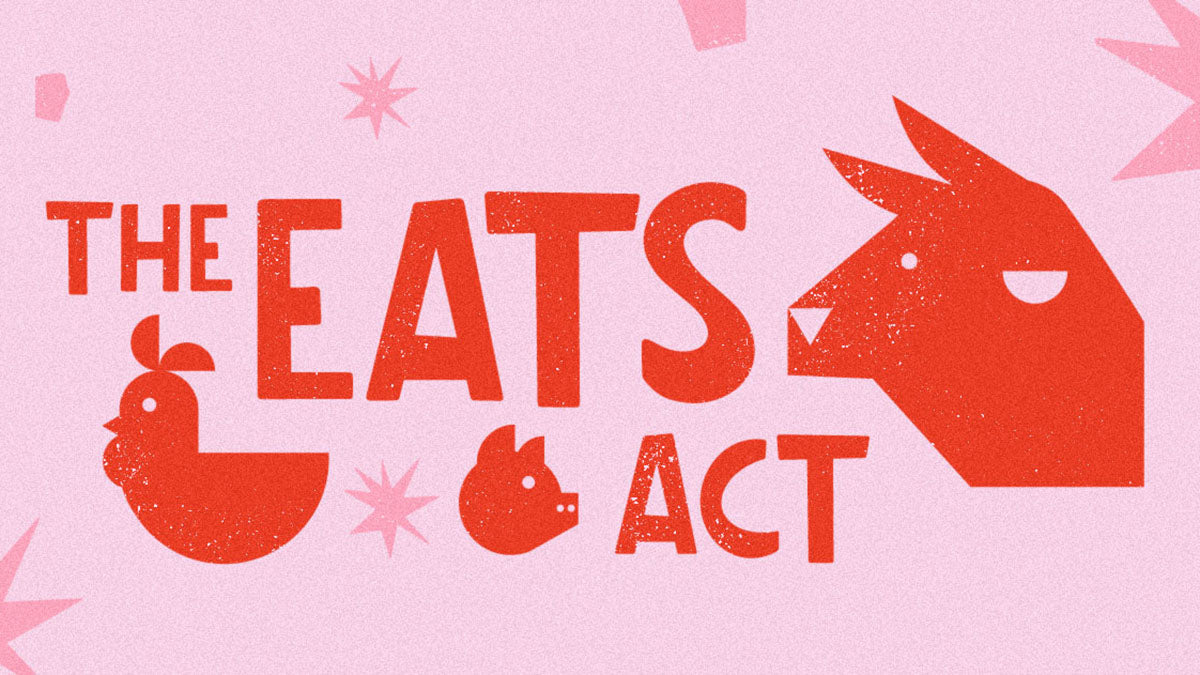In May 2023, the Supreme Court upheld a state’s right to set a higher standard for farm animal welfare. Now a few members of Congress (backed by the factory farming industry) are fighting back to overturn local laws like California’s Proposition 12 and drive standards to the lowest common denominator. If passed, the EATS Act has potentially disastrous consequences not only for farm animals but also for the livelihood of 1,000+ family farms and even the balance of power in our government.
What is the EATS Act?
The "Ending Agricultural Trade Suppression" (EATS) Act (S. 2019, H.R. 4417) and the similar “Protecting Interstate Commerce for Livestock Producers” (PICLP) Act (S. 3382) aim to prevent state and local jurisdictions from regulating agricultural products (including farm animals) within their borders that are subject to interstate commerce. The proponents of both acts want to get their respective pieces of legislation inserted into the latest Farm Bill which is set to be voted on within the next few months.
This attempt to overturn the right of an individual state to pass laws which set higher-than-federal standards for agricultural products isn’t a new idea. Previous iterations of similar proposals were rejected by both voters and bipartisan opposition in 2014, 2018 (when it was known as the “King Amendment” after the Iowa senator who proposed it), and again in 2021.
What are the consequences if the EATS act passes?
If signed into law, the EATS Act (or the PICLP Act) would roll back decades of work to improve farm animal welfare, penalize farmers who’ve invested in the infrastructure required to meet the higher welfare standards, and create needless friction between the states and federal governments.
Studies show that the EATS Act strongly contradicts public opinion — the fact is American consumers are increasingly aware of, and concerned about, how animals raised for food are treated. Both CA Prop 12 and MA Question 3 were passed overwhelmingly by voters in 2018 and 2016. Specifically, 62.6% of California residents voted in favor of Prop 12 and 77.7% of residents voted in favor of Massachusetts’ Q3.
Farmers have had to completely revamp their operations, spending precious time and money to upgrade the living space for farm animals to be in compliance with laws like Prop 12, often using more dedicated real estate on their farm per animal then they ever have.
Especially concerning is that the EATS Act would also overturn existing laws like California Prop 12 which have been upheld as constitutional by Supreme Court decision as recently as May 2023.
What you can do
We urge you to join us in opposing the EATS and the PICLP Acts. There are many ways to make your voice heard.
Share this Post
Spread the word by emailing or texting this post to your family and friends and share it with your social media followings.
Contact your Lawmakers
Phone calls are incredibly effective and efficient for making your voice heard, as staffers take notice when they receive phone calls from constituents.
You can find the phone numbers of your congressman or congresswoman on this directory, and the numbers of all Senators are listed here.
A United States Capitol switchboard operator can also connect you directly with the office of your Congressmember or Senator — just dial (202) 224-3121.
Sample Phone Script for Phone Call
Once connected to your lawmaker’s office, say:
"Hello, my name is [Your Name], and I'm a constituent from [Your City/County]. I'm calling to express my views on the Ending Agricultural Trade Suppression (EATS) Act and the Protecting Interstate Commerce for Livestock Producers Act (PICLP).
I care deeply about animal welfare and I’m asking my member of Congress [or Senator] to oppose these bills. Please do everything you can to keep these and similar provisions out of the upcoming Farm Bill. Thank you so much for your time."
If the staffer asks for the number of the bill, the EATS Act is H.R. 4417/S.2019 and PICLPA is S.3382.
Let’s be on the right side of history
We at Campfire Treats believe that all animals should be treated with kindness and respect. This includes the farm animals raised for meat. They, too, should be treated humanely and live in a healthy natural environment suited to their species.
If you feel the same, please join us in opposing the EATS Act.













